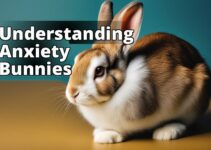Anxiety is a common mental health condition that affects millions of people worldwide. It can manifest in various ways, including excessive worry, restlessness, irritability, and difficulty concentrating. If you suffer from anxiety, it’s essential to find effective relaxation techniques that can help you manage and alleviate your symptoms. In this article, we will explore different techniques and strategies that can promote relaxation and reduce anxiety levels.
Deep Breathing Exercises
Deep breathing exercises are a simple yet powerful technique to promote relaxation and reduce anxiety. By focusing on your breath, you can activate the body’s relaxation response and calm your mind. Here’s a step-by-step guide to practicing deep breathing:
- Find a quiet and comfortable place to sit or lie down.
- Close your eyes and take a deep breath in through your nose, counting to four.
- Hold your breath for a brief moment.
- Slowly exhale through your mouth, counting to six.
- Repeat this process for several minutes, focusing on the sensation of your breath entering and leaving your body.
Progressive Muscle Relaxation (PMR)
Progressive muscle relaxation is a technique that involves tensing and releasing different muscle groups to promote relaxation. This exercise helps you become more aware of the physical sensations in your body and reduces muscle tension associated with anxiety. Here’s how to practice progressive muscle relaxation:
- Find a comfortable position and close your eyes.
- Start by tensing the muscles in your toes and feet for 5-10 seconds.
- Release the tension and let the muscles relax completely for 10-15 seconds.
- Move on to your calves and repeat the process of tensing and relaxing.
- Continue this process, gradually working your way up through each muscle group in your body, including thighs, abdomen, chest, arms, and face.
Meditation and Mindfulness
Meditation and mindfulness techniques have been used for centuries to promote relaxation and mental well-being. By focusing your attention on the present moment, you can cultivate a sense of calm and alleviate anxiety. Here are a few meditation and mindfulness techniques you can try:
- Guided Meditation: Use audio recordings or smartphone apps that provide guided meditations to help you relax and focus.
- Body Scan Meditation: Start from your head and slowly move down to your toes, paying attention to each body part and any sensations you may feel.
- Mindful Breathing: Similar to deep breathing exercises, focus your attention on your breath and notice each inhalation and exhalation.
Exercise and Physical Activity
Regular exercise and physical activity have been shown to reduce anxiety levels and improve overall well-being. Engaging in physical activities, such as walking, jogging, yoga, or dancing, can help release endorphins, which are natural mood-enhancing chemicals. Aim for at least 30 minutes of moderate-intensity exercise most days of the week to reap the benefits.
Aromatherapy
Aromatherapy is a complementary therapy that uses essential oils to promote relaxation and relieve anxiety. Some popular essential oils known for their calming properties include lavender, chamomile, bergamot, and ylang-ylang. You can use essential oils in various ways, such as diffusing them in a room, adding a few drops to a warm bath, or using them in massage oils.
Stress Management Techniques
Stress and anxiety often go hand in hand. Therefore, incorporating stress management techniques into your daily routine can be beneficial. Here are some effective stress management techniques:
- Time management: Prioritize tasks, delegate responsibilities, and set realistic goals to reduce stress.
- Journaling: Write down your thoughts and feelings to gain perspective and release stress.
- Social support: Seek support from friends, family, or support groups to share your concerns and receive encouragement.
- Healthy lifestyle: Maintain a balanced diet, get sufficient sleep, and avoid excessive caffeine and alcohol consumption.
Conclusion
Anxiety relaxation techniques can significantly contribute to managing and reducing anxiety symptoms. By incorporating deep breathing exercises, progressive muscle relaxation, meditation, exercise, aromatherapy, and stress management techniques into your daily routine, you can promote relaxation and enhance your overall well-being. Remember, everyone is unique, and it may take some trial and error to find the techniques that work best for you. It’s always advisable to consult with a healthcare professional for personalized guidance and support in managing your anxiety.
1. How can deep breathing exercises help reduce anxiety?
– Deep breathing exercises activate the body’s relaxation response and calm the mind, reducing anxiety.
-
What is progressive muscle relaxation (PMR) and how can it promote relaxation?
- Progressive muscle relaxation involves tensing and releasing different muscle groups to reduce muscle tension associated with anxiety, promoting relaxation.
-
How can meditation and mindfulness techniques help alleviate anxiety?
- Meditation and mindfulness techniques help cultivate a sense of calm by focusing attention on the present moment, reducing anxiety.
-
What are some meditation and mindfulness techniques that can be tried?
- Guided meditation, which uses audio recordings or smartphone apps, and body scan meditation, which involves paying attention to each body part, are some techniques that can be tried.


